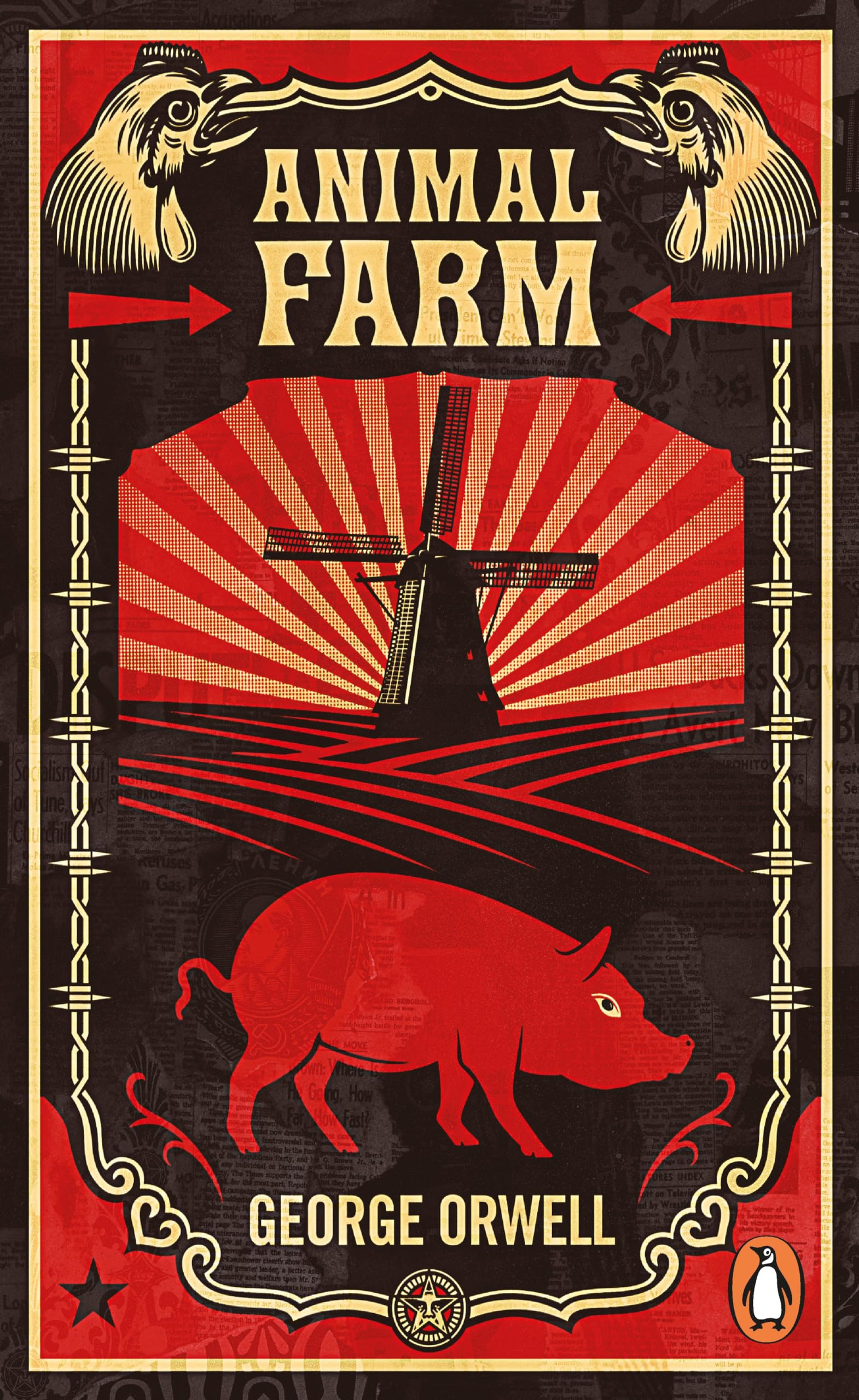Availability
upcoming
Original Title
Animal Farm
Subject & College
Publish Date
2011-03-15
Published Year
2011
Publisher, Place
Total Pages
104
ISBN
9780143416319
Format
Paperback
Country
India
Language
English
Average Ratings
Readers Feedback
“Classic, thought-provoking, and imaginative novel”- Animal Farm
Dr.GANGANE SUSHIL MADANRAO, Assistant Professor (sushil.gangane@mmcc.edu.in), Marathwada Mitra Mandals College of Commerce Pune. George Orwell’s Animal Farm is more than just a simple fable about...Read More
Dr.GANGANE SUSHIL MADANRAO
“Classic, thought-provoking, and imaginative novel”- Animal Farm
Dr.GANGANE SUSHIL MADANRAO, Assistant Professor (sushil.gangane@mmcc.edu.in), Marathwada Mitra Mandals College of Commerce Pune.
George Orwell’s Animal Farm is more than just a simple fable about farm animals; it is a deeply symbolic and thought-provoking critique of political corruption, totalitarian regimes, and the cyclical nature of power. First published in 1945, the novella remains relevant today as a powerful analogy on how revolutions can be manipulated and ideals betrayed. Through its gripping narrative and sharp political satire, Animal Farm exposes the dangers of absolute power and the ease with which oppression can disguise itself as progress.
Plot Overview: A Revolution Gone Wrong
Set on Manor Farm, the novel begins with an uprising led by the intelligent and idealistic pigs, Napoleon and Snowball. Inspired by Old Major, an elderly boar who dreams of a utopian society free from human tyranny, the animals overthrow their negligent owner, Mr. Jones, and establish a self-governing system based on the principles of Animalism. Their initial goals are noble—equality, fairness, and collective prosperity.
However, as time progresses, the pigs, particularly Napoleon, consolidate power, using manipulation, propaganda, and violence to suppress dissent. Snowball, a visionary leader, is quickly exiled, much like Leon Trotsky in the Russian Revolution, while Napoleon increasingly resembles Joseph Stalin, ruling through fear and deception. The animals, once hopeful for a just society, find themselves under a dictatorship worse than the one they originally overthrew. The famous commandment—”All animals are equal, but some animals are more equal than others”—epitomizes the betrayal of their revolution.
Themes and Symbolism: A Reflection on Power and Politics
One of Orwell’s greatest strengths in Animal Farm is his ability to present complex political themes in a simple yet impactful way. The novel serves as an allegory for the Russian Revolution and the subsequent rise of communism, but its message transcends that specific historical event. It warns of the universal dangers of unchecked power, the distortion of truth, and the manipulation of the masses.
The character of Squealer, a pig who acts as Napoleon’s propagandist, embodies the role of state-controlled media, using persuasive language to twist reality and maintain control. Boxer, the hardworking but naïve horse, represents the working class, blindly trusting the leadership despite increasing oppression. His tragic fate is a stark reminder of how those in power exploit the very people who support them.
Orwell also highlights how language and education—or the lack thereof—can be used as tools of control. The pigs slowly alter the commandments of Animalism to justify their increasing privileges, showcasing how authoritarian regimes rewrite history to maintain dominance. The other animals, unable to read or critically analyse, passively accept their worsening conditions, illustrating the importance of awareness and resistance in any society.
Writing Style and Impact
Orwell’s writing is clear, concise, and powerful. The simplicity of the fable format makes the story accessible, yet the underlying themes are deeply unsettling. The use of animals as characters allows Orwell to strip away human biases and present political realities in a raw and exaggerated manner. The novel’s short length does not diminish its impact; instead, it makes every sentence carry weight, leaving the reader with a lasting impression.
The book’s ending is particularly haunting. When the animals look through the farmhouse window and can no longer distinguish between the pigs and the humans they once overthrew, Orwell delivers a chilling message: power corrupts, and those who seize it often become the very oppressors they once opposed.
Relevance in Today’s World
Despite being written over 75 years ago, Animal Farm remains disturbingly relevant. Whether in the context of authoritarian governments, corporate greed, or media manipulation, Orwell’s warnings continue to resonate. The book serves as a reminder that democracy, freedom, and justice are fragile ideals that require constant vigilance.
The novel is particularly significant in the digital age, where misinformation, propaganda, and political deception are more widespread than ever. Orwell’s message encourages readers to think critically, question authority, and recognize the signs of corruption before it is too late.
Final Verdict: A Must-Read Classic
Animal Farm is not just a novel; it is a wake-up call. Its timeless themes, engaging storytelling, and deep political insights make it a must-read for anyone interested in history, politics, or human nature. Orwell masterfully blends satire and realism to create a story that is as entertaining as it is thought-provoking.
If you have not read Animal Farm, it is time to pick it up. And if you have, it is worth revisiting, because its lessons never grow old.

